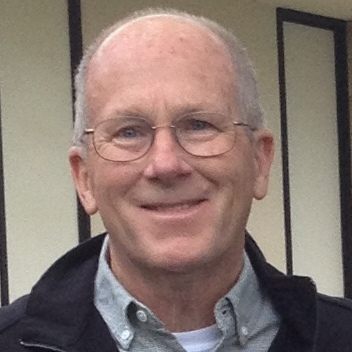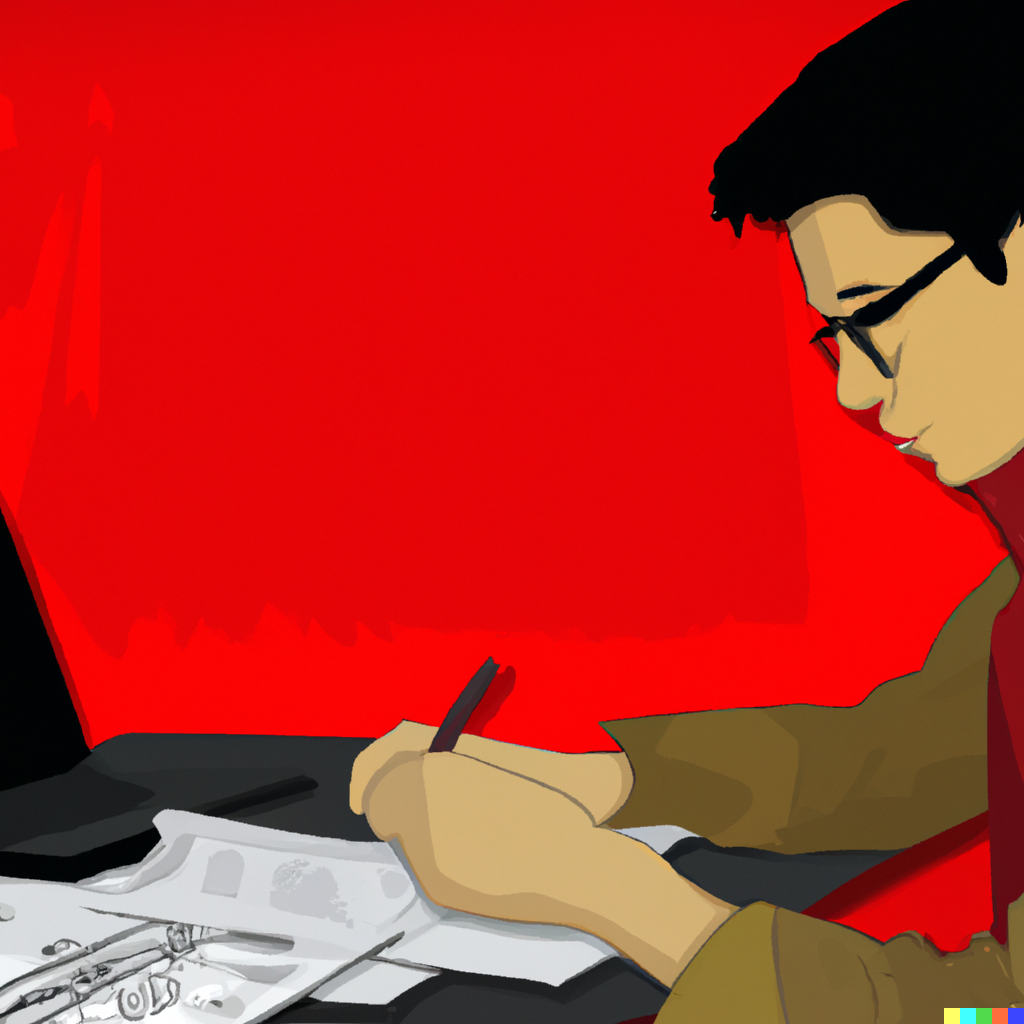As many would say, to know the truth is to set you free. After all, knowing what statements conform to fact and which do not would seem to set one free from all kinds of errors, such as those made in thinking, speaking, and predicting. But does knowing the truth actually set you free, or does it do the opposite?
The Telescope posed this question to Professor Chuck Buxton, a Pulitzer Prize-winning journalist and Professor of Journalism at Palomar College, for his perspective on how journalism relates to the perennial philosophical conundrum regarding the nature of truth.

Professor Chuck Buxton
“In journalism, there is a reliance on the importance of truth, with an implicit assumption that we can know what it is and build that knowledge into our reporting,” Buxton said. “But there is a danger in assuming we can know the truth.
“What seems the truth may be a widely accepted conclusion or assumption that may break down under insights that come from time and challenge,” Buxton added. “In the practice of journalism, which is based on assessing a constant flow of information, it is valuable to keep an open, questioning mind and not be locked into preconceptions or orthodox thinking.”
Testimony to the view that humans have a personal need for truth can be found all the way back in the writings of John Calvin, who wrote in 1536 in his book, “Institutes of the Christian Religion,” in which he states “There has been implanted in the human mind a certain desire of investigating truth, to which it never would aspire unless some relish of truth antecedently existed.”
To delineate the relationship between truth and storytelling in journalism, the Telescope inquired of Buxton, “Journalism involves telling the truth and writing stories. How is journalism similar to storytelling in literature and truth-seeking in philosophy and how does journalism differ from literature and philosophy in these respects?”
“Journalism, to me, is about the practice of seeking the truth, not telling the truth,” Buxton responded. “The problem, a cornerstone of the philosophical pursuit of what is knowledge, is that assumptions and perceptions are constantly changing. Sometimes those changes develop slowly over time, other times in a sudden flash of breaking news such as a flood or wildfire.
“The best narratives convey in human terms the emotions and beliefs of the time and present them in the context of social pressures and cultural changes. For example, the racial justice movement is better understood when seen in the historic changes in America’s demographics,” Buxton said.
The “emotions and beliefs of the time” that Buxton speaks of exist as the product of a dialectic between antiquity and novelty, or tradition and innovation, in a process of arriving at truth.
This interplay between tradition and innovation was an idea expressed by Sir Francis Bacon in “The Advancement of Learning”, published in 1605, in which Bacon cautioned against dispensing with the study of antiquity. Bacon believed the lessons of antiquity provide the philosophical substance from which true insights may be derived to improve upon tradition. For this reason, Bacon touted the antiquity within tradition as indispensable for progress. According to Bacon, antiquity should be revered. “Antiquity deserveth that reverence,” Bacon says that, “men should make a stand thereupon and discover what is the best way; but when the discovery is well taken, then to make progression.”
This interplay between tradition and innovation has real-world relevance for the present-day dynamic within journalism. As Buxton observes, “We have entered an internet era when traditional forms of journalism are dying – especially daily newspapers, and to a lesser degree, established network TV news.
“At the same time, new forms of mass communication are being created, powered by the potential of instantaneous and ubiquitous online transmission,” Buxton said. “What remains a constant is the need for people to know, and the importance of journalists to continue to interpret and explain the information available in the vast marketplace of news.”
Interpreting and explaining the news are vital functions journalists provide for the moral and intellectual lives of their readers. Part of this service is to differentiate between knowledge and true opinion.
The difference between knowledge and opinion was alluded to in the writing of the ancient Greek philosopher Plato in his work, “The Meno,” ca. 385 B.C.E., in which the main character, Socrates, said, “There are not many things which I profess to know, but this is most certainly one of them,” specifically, that “knowledge differs from true opinion.”
Discerning this difference is vitally important to prevent news consumers from conflating evidence-based assertions with dogmatic impostures masquerading as factual explanations. This discernment is more problematic than it might appear at first blush.
A Pew Research study published in 2018 formulated five factual and five opinion statements and asked participants to identify each. Of the 5,000 adults who participated, only 35% of participants identified all opinion statements correctly, and only 26% identified all factual statements correctly.
Opinion articles in journalism do exist and play an important role in interpreting the news when the complexity of an issue appears daunting. But the media news sources of today often mix fact with opinion to appeal to confirmation bias, the tendency to interpret the news based on one’s pre-existing beliefs.
Buxton described the predicament journalism faces in a rapidly evolving cultural climate where appeals to confirmation bias are subverting the impartiality of the press.
“Journalism is facing an identity crisis of sorts as trust in the media continues to erode,” Buxton said. “Ultimately, journalism is made up of reporters and editors who spend every day trying to decide what to cover and how to maximize their audience, since their livelihood depends on sustaining a following.
“In today’s climate, the challenge might best be described as protecting and sustaining values of questioning the actions and decisions of those in power while striving to maintain the trust of readers and viewers who have so many ways to gather information,” Buxton said.
“The days of a daily news menu prepared by journalists working for organizations that are the dominant sources of news are disappearing. Coverage is increasingly fragmented and seekers of news are increasingly going to sources that match and reinforce their point of view,” Buxton said.
“Thus, the contrarian viewpoint is even more suspect, especially in the climate of a cultural divide where deviation from long-established norms (tradition) is considered philosophically and intellectually unacceptable, and failure to adhere to new beliefs (woke) is viewed as intellectually and socially unacceptable,” Buxton said.
Class divisions exacerbated by unscrupulous news sources that seek to reinforce their audience’s view often reflect the gap between those who possess more power in society and those who possess less. And history attests to the fact that disparities among social classes aren’t new; they have an endemic presence in society going back thousands of years.
In his book “The History of the Peloponnesian War,” 431 B.C.E., the Greek historian Thucydides recorded a speech given by the soldiers of ancient Athens. After invading Melos, a little island colony of Sparta with whom Athens was at war, the Athenian army gave a startlingly direct speech to the Melians reflecting the deplorable historical cruelty of conquerors to their victims. “You know as well as we do,” they said to the Melians, “that right, as the world goes, is only in question between equals in power, whereas the stronger do whatever they can and the weaker suffer whatever they must.”
The callous treatment of the weaker by the stronger pervades history. Fortunately, the United States Government recognized that for a nation to exist, it must accord rights to its citizens to prevent this merciless mistreatment.
Protecting the rights of the less fortunate is a function of journalism that was made possible in the United States with the passage of the first amendment, in which Congress secured the freedom of the media.
As Alexis de Tocqueville wrote in his 1835 work, “Democracy in America,” no nation, in his view, can be “great without respect for rights; one might almost say that without it there can be no society.”
When this law went into effect, journalists were given the right to not only curtail the prerogatives of power holders but also the opportunity to give a voice to the disenfranchised.
In the interview with The Telescope, Buxton explained, “At its best, journalism shines a light on what otherwise would be the unseen, unreported, and often unpleasant underbelly of society, such as the homeless.”
Buxton believes in not only covering the unpleasant aspects of society but also in the need to cover nuances of less readily apparent stories that are every bit as newsworthy.
“The decision of where to send resources, and how much time to spend can have important political and social consequences. The problems of the homeless and of racial disparities certainly call for attention,” Buxton said.
“But what about the epidemic of fentanyl deaths that disproportionally hit middle-class males? Or the loss of high-paying, high-tech manufacturing jobs that have been exported abroad? Much of journalism boils down to decisions about where to shine the spotlight,” Buxton said.
The focus of journalism varies by locality and historical epoch. Yet, regardless of the era in which news is gathered and delivered, the media as an industry has its own internal concerns regarding its means of subsistence.
Buxton, who supervised a project on exaggerated statistics on missing children that won the 1986 Pulitzer Prize for Public Service, spoke in an interview in 2012 with a student journalist sharing his thoughts on this line of work. Here Buxton comments on the pecuniary predicament of present-day journalism:
“The biggest challenge is figuring out how the news institutions of the future will continue to make money. Journalism as it has been practiced for a century or more has relied on reporters, editors, artists, and photographers to create the news report. An expensive proposition,” Buxton said.
“The single biggest challenge I believe is to create new models that require online viewers to pay for what they are reading and seeing. Newspapers, which have a tradition in which I am steeped, of monitoring government and digging behind what is presented by institutions – whether police, politicians or bureaucrats – are running out of resources and readers,” Buxton said.
“[Newspapers] are increasingly diluting their reach by raising subscription costs. Beyond the revenue question, journalism, as practiced online, is heading more in the direction of a 19th century, even 18th-century model in which there are multiple partisan voices,” Buxton said.
“People today tend to pay for the views they want to hear. The big question is, what will this fragmentation mean, and what kind of jobs will be left,” Buxton said.
“One final word of caution,” Buxton added. “I find many of my colleagues cringing at the thought of going to more conservative outlets such as Fox News or National Review. I consider that a form of self-censorship. Far better to know and understand what all sides are thinking. That’s a good lesson for all journalists.”
Image Sources
- Photo2 Chuck Buxton (1).JPG: Photo courtesy of Chuck Buxton | Used With Permission
- JasonPacheJournalismInterview DALL·E 2.png: DALL·E 2 | Public Domain Mark 1.0


Comments are closed, but trackbacks and pingbacks are open.